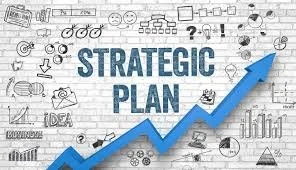The days of clear, siloed hierarchies are fading. In today’s complex business environment — where projects span geographies, products, and functions — leaders are increasingly working in matrixed organizations. In these structures, dotted line reporting has become common.
A dotted line reporting relationship means an employee has a primary manager (the solid line) and a secondary manager (the dotted line). The solid-line manager holds ultimate accountability, while the dotted-line manager influences goals, priorities, and performance. In theory, this structure fosters collaboration, agility, and cross-functional alignment. In practice, it often creates confusion, competing priorities, and blurred accountability.
For executive leaders, the dotted line is both an opportunity and a challenge. Done well, it accelerates collaboration and breaks down silos. Done poorly, it drains energy, slows decision-making, and leaves employees caught in the middle. I recently worked with a VP whose product managers each reported a solid line to her and a dotted line to regional sales leaders. The intent was to keep product and customer needs aligned, but instead, employees felt torn between short-term sales demands and long-term product strategy. With clear agreements on decision rights and regular triad check-ins, the team shifted from conflict and burnout to better trust and alignment — a reminder that the dotted line itself isn’t the issue, but how leaders manage it.
Benefits of Dotted Line Reporting
1. Stronger Collaboration Across Functions. When dotted lines work, they encourage knowledge-sharing and break down silos. Employees gain direct access to leaders in other functions, which strengthens alignment and helps them see how their work impacts the bigger picture. This model can support enterprise thinking — something matrix structures were designed to achieve.
2. Flexibility and Agility. A dotted-line manager can step in when the solid-line manager is unavailable or specialized expertise is required. This flexibility helps organizations move faster and make better decisions without being bottlenecked.
3. Broader Development for Employees. Employees exposed to multiple leaders receive a wider range of coaching, feedback, and perspectives. This can accelerate development — particularly in areas outside their functional “home base.”
Challenges Leaders Must Address:
1. Confusion and Competing Priorities. Employees often struggle to know whose requests take priority. Without clear agreements, they may waste time managing politics rather than the work.
2. Conflict Between Managers. If solid and dotted line managers aren’t aligned, employees can feel like they’re stuck between competing agendas. Research on matrix organizations (HBR, Problems of Matrix Organizations) shows that unresolved conflicts at the top cascade into stress and inefficiency at lower levels.
3. Accountability Gaps. When performance suffers, leaders sometimes point fingers rather than own responsibility. Without clarity, employees can feel unsupported and unsure of what success looks like.
Leadership Strategies for Success
1. Establish Crystal-Clear Roles and Responsibilities. Leaders must explicitly define what falls under the solid line versus the dotted line. Who owns performance reviews? Who sets priorities? Who provides coaching and feedback? Clarity removes guesswork and builds trust.
2. Align and Communicate Consistently. Managers in dotted line relationships must commit to regular alignment. Whether it’s a quick sync before big deadlines or monthly check-ins, the goal is to speak with “one voice” to employees. Mixed messages erode confidence and credibility.
3. Prioritize the Employee Experience. The burden of navigating dotted lines shouldn’t fall on employees. Leaders must proactively manage potential conflicts, provide guidance, and shield employees from being pulled in competing directions.
4. Build a Culture of Feedback and Transparency. Dotted line reporting works best in environments where open dialogue is encouraged. Continuous feedback — not just during formal reviews — ensures employees know how they’re doing and where to focus.
5. Use Check-ins as a Leadership Tool. Short, frequent check-ins across solid and dotted line managers help maintain alignment. They also give employees a chance to raise issues early, reducing the risk of burnout or disengagement.
Dotted line reporting is not a problem to be solved but a reality to be managed. In today’s matrixed organizations, the dotted line can either accelerate collaboration or create frustration. The difference lies in how leaders approach it. By setting clear roles, aligning consistently, and prioritizing the employee experience, executives can turn dotted-line reporting into a powerful tool for integration and growth. At its best, the dotted line isn’t a weakness in structure — it’s a bridge that connects functions, strengthens teams, and drives organizational success.
Quote of the Day: “Clarity affords focus” -Thomas Leonard
Reflection Question: How has dotted line reporting played out in your organization — as a bridge to collaboration or as a source of tension? Comment and share below; we’d love to hear from you!
The next blog in this series 7/7 will focus on managing managers.
As a leadership development and executive coach, I work with leaders to sharpen their leadership skills and navigate tricky situations, contact me
How do you lead your dotted line?








